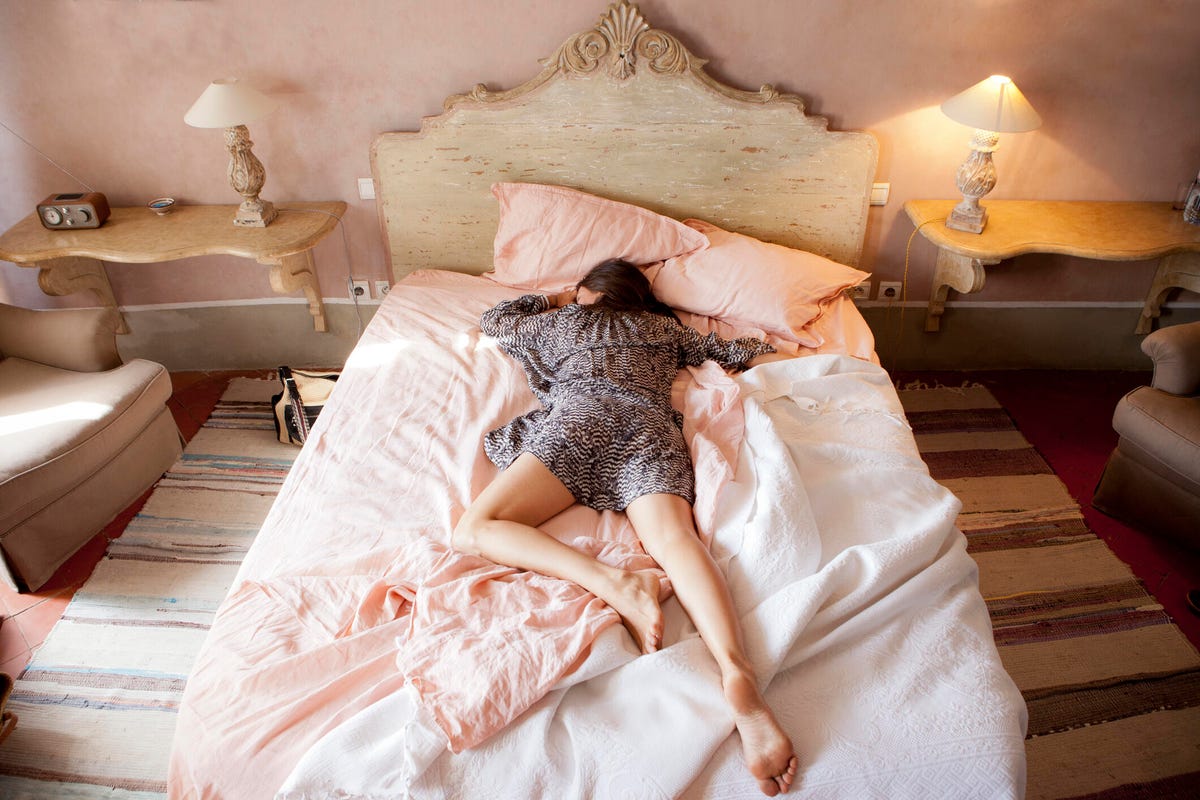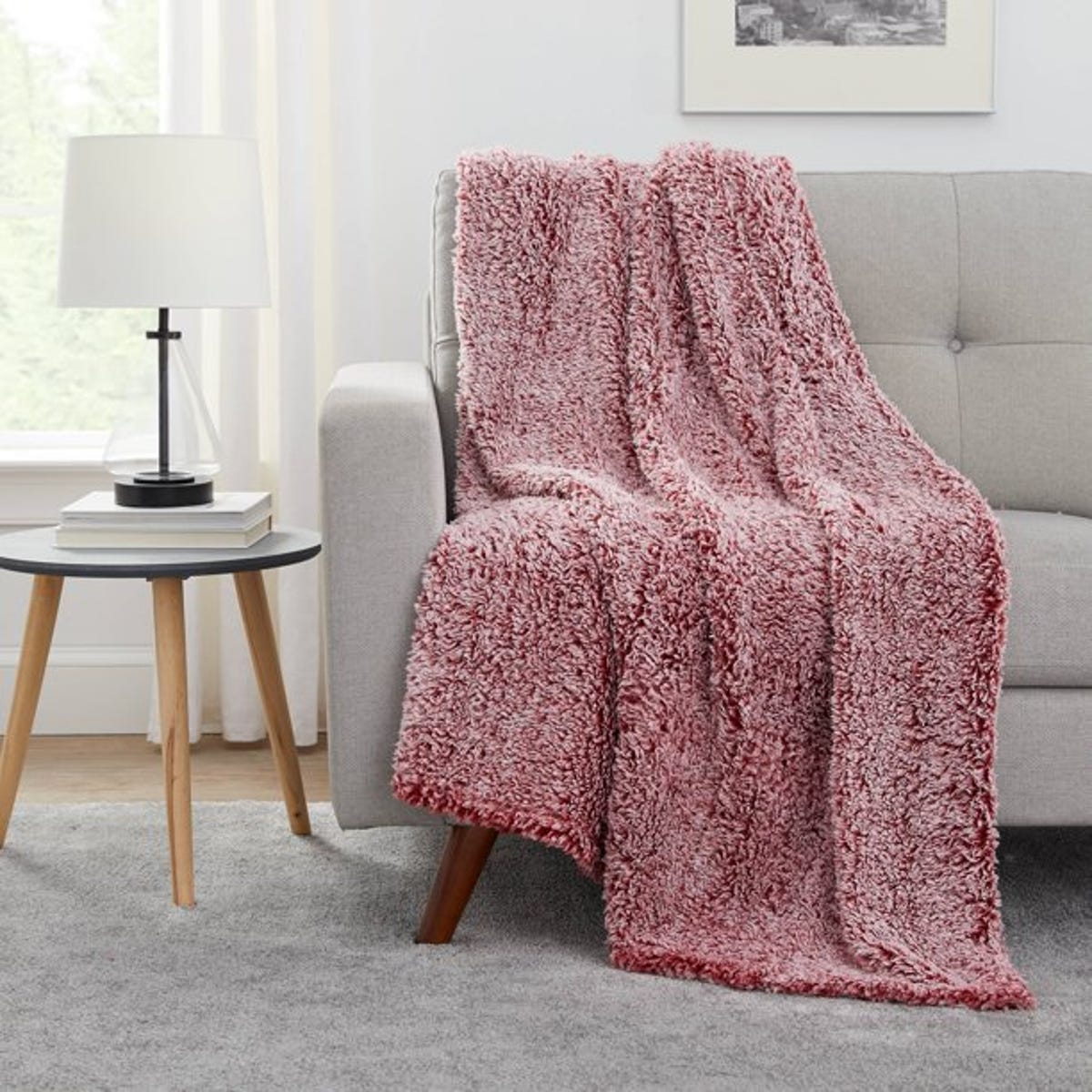Night Sweats: 7 Reasons You’re Sweating at Night and How to Stop It

To get good, undisturbed sleep is crucial to your well-being. Sleep can drastically improve your mood, increase energy and productivity, reset your metabolism, and even affect your ability to fight disease. But getting that golden eight hours of sleep is difficult when you wake up in the middle of the night drenched in sweat.
Anyone who has experienced night sweats knows this routine: falling asleep. I wake up sweating a few hours later. Reluctantly get out of bed, shrug off your damp pajamas, and get clean set of leaves on your bed
Night sweats are not only annoying, but can also rob you of a good, restful sleep. However, there are options Keep cool while you sleep. We’re going to break down the seven main causes of those pesky night sweats and the best treatments to help you sleep through the night. (You can also read about our favorite for better sleep mattresses and pillow of the year.)
Also read: These habits ruin your sleep schedule

For people who sleep warm, sleeping on the blanket is a nocturnal event.
Thomas Grass/Getty Images
What causes night sweats? 7 possible reasons
The simple answer would be that yours AC is not set low enoughbut people who sweat in their sleep, no matter the temperature (hi, hello), know it’s not that simple.
When you feel like you’ve tried it all – from cold AC temps and fans at full speed to “heatsinks‘ and sleeping naked — but nothing worked, you might want to give up and accept changing your sheets every day as your fate.
Not so fast: The first step in solving a health-related problem is to understand the cause. From there, you can work with a doctor or try home remedies to get rid of the symptom.
Night sweats can really have many reasons. Here are some of the most common:
1. Your linens
Honestly, your sleep attitude could be the problem. Your sheets, mattress topper, pillow, and mattress itself can cause you to sweat at night. Look at cooling or temperature-regulating sheets – at best, they’ll ease your night sweats; Worst case scenario is you get something nice new sheets.
2. Hormonal changes
If your hormone levels fluctuate greatly or are going through a transition phase, you may sweat at night. A case in point? menopausal women. One of the uncomfortable symptoms of menopause is night sweats, and it is largely due to the decreasing levels of estrogen in a woman’s body. Pregnancy and menstrual cycles can also affect your body’s nighttime core temperature. In men, low testosterone levels can contribute to this.
3. Medication
Some prescription medications can cause you to sweat at night. If you have a prescription, ask your doctor if night sweats are a side effect.
4. Medical Conditions
Likewise, many medical conditions can cause night sweats. According to the Mayo Clinic, these include hyperthyroidism, anxiety disorders, autoimmune disorders, sleep apnea, drug addiction, neurological disorders, and more. Viral infections can also cause night sweats due to fever.
5. Hyperhidrosis
Since we’re talking sweat, hyperhidrosis – excessive sweating – deserves a special note. If you tend to sweat excessively during the day and night, you can talk to your doctor about this condition and whether or not you might have it.
6. Stress
High levels of stress can manifest as physical symptoms, including night sweats. Stress-related night sweats can be accompanied scary nightmares or stressful dreamsrapid breathing, increased heart rate and difficulty falling asleep worries or fears.
7. Alcohol and Diet
Drinking alcohol before bed can cause you to sweat at night because alcohol affects how your nervous system works and your core body temperature. While there is little evidence that eating alone can cause night sweats, it is believed that certain types of food, particularly spicy and high-fat foods, can make night sweats that are already present.
How to stop sweating while you sleep: 4 solutions
Tara Youngblood, a sleep expert and founder of Chili Technology (fittingly a maker of temperature-controlled bedding accessories), says it’s all about ending night sweats for good by attacking the root cause. Here she shares tips on four of the most common causes of night sweats.
1. Take a second look at your mattress
“Your body is an engine,” says Youngblood. “While you sleep, it constantly gives off heat, [and] There are some materials that actually raise your body temperature while you sleep.” She points to foam as a common culprit, noting that some foam mattresses can reflect heat back to you, causing you to sweat more.
Continue reading: How to tell if your mattress and pillows are ruining your sleep

Your blankets and blankets could actually be working against you.
mainstay
2. Also think about your blankets and duvets
“Make sure your ceilings aren’t working against you,” says Youngblood. “Your blankets could be preventing you from cooling off by blocking the cool air your fan or air conditioner brings.”
When you sleep under a blanket, you create a “cave” for your body to sleep in, Youngblood says, and it’s important to make sure your cavity stays cool with cooling blankets or airy materials.
3. Change the temperature in your room
Make sure you are lowering the temperature in your room before bed. This activates your body to cool down naturally. If your room is the same temperature throughout the day, your body will get used to it temperature and no deeper into your sleep. If you can’t lower the temperature of your room, take a cool or cold shower.
4. Avoid alcohol or heavy meals before bed
Alcohol and heavy eating before bed can also crank up the heat at night, says Youngblood. Try avoiding both a few hours before bed to lower your core body temperature, which reduces sweating during sleep.
More sleep tips
The information contained in this article is for educational and informational purposes only and is not intended as health or medical advice. Always consult a physician or other qualified healthcare provider with any questions about a medical condition or health goals.